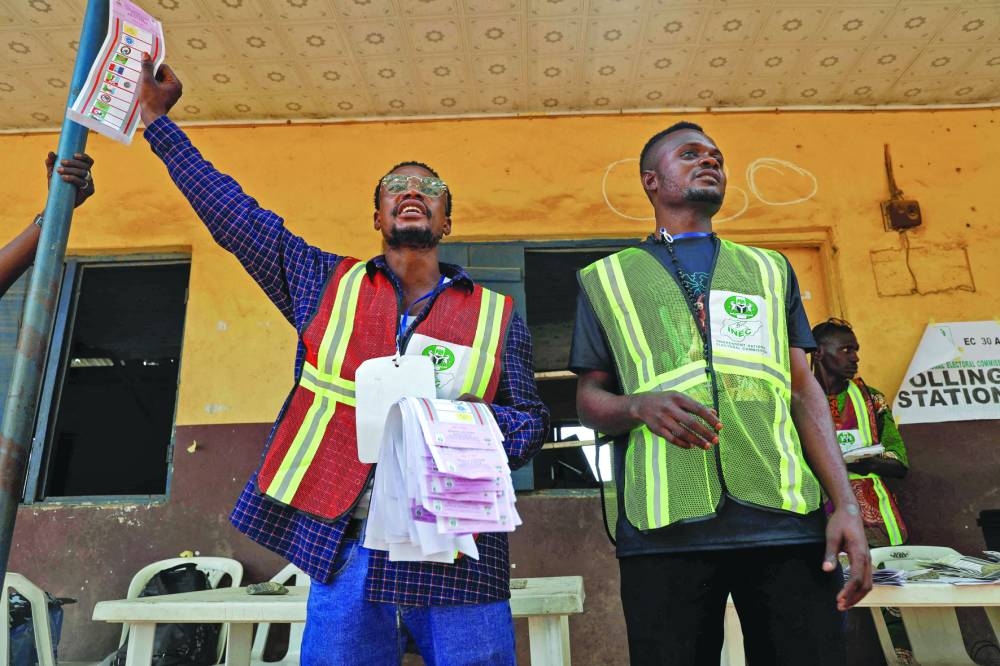Vote counting started following local elections in Nigeria yesterday, three weeks after the ruling party won a presidential poll that the opposition said was marred by fraud.
With President Muhammadu Buhari stepping down in May after two terms, many hoping for change were disappointed in the way elections were conducted last month, a sentiment which could impact the local poll.
Africa’s most populous nation is electing more than 900 state assembly lawmakers and 28 governors, with a particularly competitive contest in the commercial capital Lagos.
Election observers Yiaga Africa noted “a marked improvement in the management of election logistics” yesterday despite some “incidences of voter intimidation and harassment”. Both the Labour Party (LP) and the Peoples Democratic Party (PDP) of the opposition are contesting the victory of the All Progressives Congress (APC) in the February 25 election in a legal battle that could extend over several months.
They claim that technical mishaps allowed for ballot manipulation, which the electoral commission, INEC, denied.
After a day of relatively peaceful voting in Lagos, many people kept watch as election officials proceeded to count ballots manually before they were to be uploaded online.
“I am pleased with the counting so far. The election has been free and fair. I hope INEC will do what is normal and declare the rightful candidate as the winner,” said 25-year-old nurse Bimpe Adepeju.
Earlier in the day, heavy security was seen deployed across the city of some 20mn people. Considered the fiefdom of president-elect Bola Tinubu, outsider Peter Obi of the LP caused a stir last month by winning the most votes in Lagos state thanks to widespread support from Nigeria’s youth. One of Obi’s supporters who showed up to vote on Saturday in the Agidiigbi Ikeja area was Damilola Adisa, a 20-year-old economics student.
While her candidate lost the presidential race, the first-time voter said she sees “this election too as an opportunity for a change”.
Governors are powerful positions in Nigeria, with some controlling state budgets that are larger than those of several African nations.Most states are currently governed either by the APC or the PDP, whose leader Atiku Abubakar came second in the presidential elections.
Whether the growing popularity of Obi, who came third after Abubakar, will translate at the governorship and local assembly levels remains to be seen.
Tinubu is a former governor of Lagos and remains highly influential in the state where his party’s candidate Babajide Sanwo-Olu is running for re-election against Gbadebo Rhodes-Vivour (LP) and Olajide Adediran (PDP). Other hotly contested races took place yesterday in southern Rivers and northern Kano, while northeast Adamawa could see the election of Nigeria’s first woman governor.
A decisive factor in these local elections will be turnout — though more than 93mn Nigerians are registered to vote, just over 24mn cast a ballot in February.
International
Nigeria counts local election votes in shadow of contested poll
Vote counting started following local elections in Nigeria yesterday, three weeks after the ruling party won a presidential poll that the opposition said was marred by fraud.

Officials of the Independent National Electoral Commission (INEC) count votes after the gubernatorial election in Lagos yesterday.
